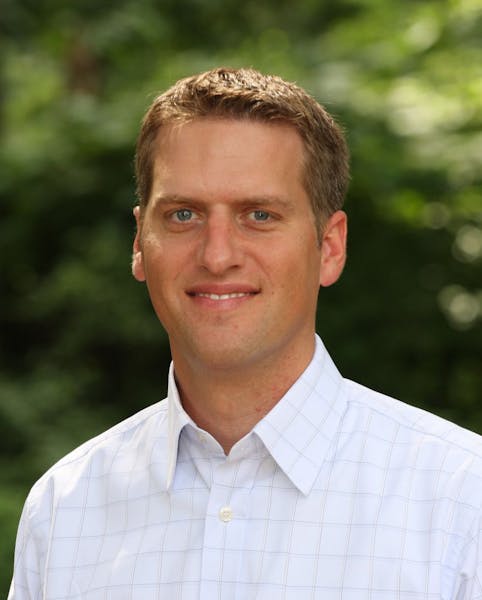Back in the seat of power at the Capitol, DFLers suddenly find themselves on a political tightrope.
Their challenge in the wake of last week's resounding election victories over the GOP: Strike a balance that will allow them to chart a new course for the state, stoke a fragile recovery and stare down a looming deficit while keeping expectations in check.
DFLers walk in with a green light to carry out federal health-care reforms opposed by the outgoing GOP majority. They can put statewide tax hikes back on the table, roll out new capital improvement projects and approve employee contracts, all rejected by the GOP.
Dayton said his party has been given a vote of confidence from Minnesotans that he does not intend to squander.
"People will have a sense whether the state is getting better for them or it's not," he said, "and that's how we will be properly judged at the end of this session, at the end of the two years."
Behind him are a new breed of DFL legislators, many of them suburban moderates with little patience for my-way-or-the-highway politics from either party.
"I think the first thing is not to overstep, and not to repeat the same mistakes we saw in the last couple of years," said Sen.-elect Melisa Franzen, who defeated former House Ways and Means Vice Chairman Keith Downey, a two-term representative who was trying for the Edina Senate seat. "It's not always going to be popular, to be a voice of moderation, finding that compromise."
Other DFL newcomers from competitive districts agree that the goal is to tamp down the hyper-partisanship.
John Hoffman, an Anoka-Hennepin school board member who unseated Republican Ben Kruse in the Coon Rapids-Brooklyn Park area, described a message he heard from a man while door-knocking early in the campaign.
"He said, 'I don't care if you're Republican, Democrat or Green, you've got to get something done. Quit the finger-pointing, quit shutting down government, and promise me you won't take a paycheck if you can't get your work done,'" Hoffman said.
DFLer Greg Clausen, a retired Rosemount High School principal who won a GOP-held seat in Rosemount and Apple Valley, said he wants to focus on balancing the budget and beginning to pay back the $2.4 billion owed to public schools.
Within the new DFL majority, he said, "We have to be careful, now that we have both houses and the governorship, that we're not abusing that power."
Those fresh voices may soon find themselves at odds with old-guard DFLers and interest groups, some of whom have waited a generation for the ability to put their imprint on taxes, spending and make other changes like same-sex marriage.
And business leaders who had formed a fragile alliance with Dayton when he faced strong GOP majorities now worry about a full-throttle DFL agenda they fear could include tax hikes, more spending and, with environmental groups a stronger voice, more regulation.
"I have to admit we are a little nervous," said David Olson, president of the Minnesota Chamber of Commerce.
Back to the '80s?
Many still remember the last time the Democrats ran the table, and how quickly party unity fell apart.
In the 1980s, DFL Gov. Rudy Perpich -- the last governor to enjoy a one-party monopoly -- pushed for education-reform measures that riled the unions. When he tried to lower the state's personal income tax rates to make the state more competitive, party leaders were infuriated.
Tom Triplett, who served as both revenue and finance commissioner under Perpich, recalled that the governor, sometimes to his dismay, got consistently liberal bills from legislators. "He was more of a centrist, really and truly, than some of the legislators," Triplett said.
Special sessions and harsh rhetoric were not unheard of, such as when Perpich vetoed a bipartisan property tax bill in 1989. DFL House Speaker Bob Vanasek asked if the governor "has abandoned the people that elected him."
That, in part, is why Dayton and legislators immediately struck a cautious tone last week.
After the high-profile defeat of a proposed amendment to ban same-sex marriage, Senate Majority Leader-elect Tom Bakk put the brakes on any notion the Senate would take the lead on a controversial measure to legalize same-sex marriage.
While Dayton found political success with his tax-the-rich message, he has taken a more restrained tack since Election Day.
The governor and his top staffers have spent months building a new budget proposal that is likely to call for some new revenue, but not nearly enough to close the gap alone. Facing what could be another sizable deficit projection, Dayton's budget blueprint could set off new tensions with constituencies who thought the years of cuts and reductions were over.
The upcoming economic forecast will "impose that reality on our wish list and everybody else's wish list," Dayton warned.
In the background for now are election-scarred Republicans, waiting to pounce at any opening. Some GOP operatives say they are taking lessons from the mistakes of their failed legislative leaders.
"We will win it back," said GOP operative Carl Kuhl. "And when we do, we can't govern again like a bunch of Texas Republicans."
Staff writer Rachel E. Stassen-Berger contributed to this report. Baird Helgeson • 651-925-5044
Idaho group says it is exploring a ballot initiative for abortion rights and reproductive care

